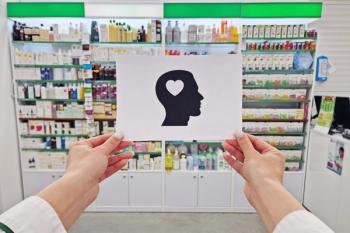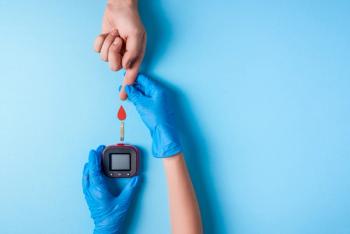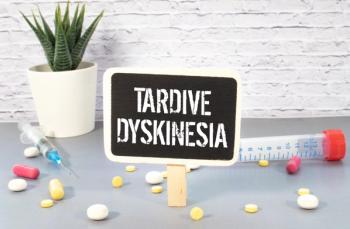Intravenous ketamine infusions are both highly efficacious and safe for patients with treatment-resistant depression, according to research published in the Journal of Affective Disorders.1 The new study adds to clinical ketamine administration data by suggesting that early response may be indicative of eventual remission.
According to the National Institute of Mental Health, an estimated 21 million adults in the US experienced a major depressive episode in 2021, highlighting the significant need for improved treatments.2 The use of ketamine for those with major depressive disorder who fail to respond to traditional pharmacotherapy has shown positive results, but data is still lacking on key issues.
Key Takeaways
- A study published in the Journal of Affective Disorders suggests that intravenous ketamine infusions are highly efficacious for patients with treatment-resistant depression.
- Results show that 52% of participants achieved remission after three infusions, and 67% achieved a positive response, indicating the potential effectiveness of ketamine in challenging cases of depression.
- Among participants with significant suicidal ideation at baseline (81%), ketamine treatment led to a notable reduction, with 67% experiencing at least a 50% decrease in suicidal thoughts.
“Even when pharmacotherapy works, the time to response may be several months or longer,” the authors wrote. “Medications also have limited success in reducing suicidality. Against this background of difficult-to-treat mood disorders, the need for rapid and more efficacious treatments is clear, particularly if the treatment reduces suicidality as well.”
A team of investigators led by the Mayo Clinic conducted a study to identify preliminary blood-based biomarkers of ketamine response in patients with treatment-resistant, non-psychotic, unipolar major depression or bipolar I or II depression. The open-label clinical trial, called Bio-K (NCT03156504), included 75 adults between the ages of 18 to 65 with treatment-refractory unipolar or bipolar depression.
The study participants received 3, 0.5 mg/kg intravenous ketamine infusions over the course of 11 days at 1 of 4 clinics in either Michigan, Maryland, or Minnesota. After an initial 100 minute infusion, participants were given the option to choose 100 minute or 40 minute infusions based on side effect concerns. The participants provided 3 blood samples: pre-infusion, post infusion 1, and post infusion 3. They also completed self-reported assessments on demographic and medication data.
At baseline, 30% of participants were taking SSRIs, 13% were taking SNRIs, and 50% were on other antidepressants, including tricylics, vortioxetine, and bupropion. Additionally, 22% were taking an atypical antipsychotic, 8% were taking a stimulant medication, and 35% were taking other augmentation agents or mood stabilizers. Participants remained on these medications throughout the study period.
The primary outcome was remission as measured by the Montgomery-Asberg Depression Rating Scale. Other outcomes included 50% reduction in Beck Suicide Scale score, safety monitoring, and varying durations of infusions.
READ MORE: Pharmacist Knowledge of Psilocybin Remains Limited
Investigators found that 52% of participants achieved remission after 3 infusions, and 67% achieved response. Of the participants who achieved response after 1 infusion, 66% reached remission after all 3 infusions. Of those who did not respond after their first infusion, 40% achieved remission after 3 infusions. Of non-responders after 2 infusions, 20% went on to reach remission.
“As in other studies of ketamine, the initial response to treatment was a strong predictor of who would do well,” Sagar Parikh, first author on the study, said in a release.3 “Two-thirds of those who responded after one infusion went on to achieve remission, while those who hadn’t responded measurably after two infusions were unlikely to start to respond after an additional one.”
At baseline, 81% of participants had significant suicidal ideation, with 67% of those experiencing at least a 50% reduction after treatment. Additionally, there were comparable safety and efficacy data amongst the 3 infusion length groups, and no link was found between BMI, age, or gender to remission.
Study limitations include lack of a control group, the fact that neither patients nor research staff were blind to treatment, and that insufficient data on clinical factors, such as comorbidity and length of current depressive episode, was collected.
“These findings may be useful in personalized planning of the number of treatments and ketamine dosing, using the person's response to the first two infusions,” the authors concluded. “Overall, the consistency of outcomes across clinical sites and across multiple clinician-reported and patient-reported instruments, suggests high efficacy and safety of IV ketamine for serious depressive episodes. Our data on varying ketamine infusion duration adds novel insights into the clinical administration of this new treatment for refractory and severe patients.”
READ MORE: Mental and Behavioral Health Resource Page
References
1. Parikh SV, Vande Voort JL, Yocum AK, et al. Clinical outcomes in the biomarkers of ketamine (Bio-K) study of open-label IV ketamine for refractory depression. J Affect Disord. 2024;348:143-151. doi:10.1016/j.jad.2023.12.033
2. Major Depression. NIH. Report. July 2023. Accessed February 12, 2024. https://www.nimh.nih.gov/health/statistics/major-depression
3. Gavin, K. Ketamine’s promise for severe depression grows, but major questions remain. News Release. Michigan Medicine. February 8, 2024. Accessed February 12, 2024. https://www.michiganmedicine.org/health-lab/ketamines-promise-severe-depression-grows-major-questions-remain
























